2 Comments
share this
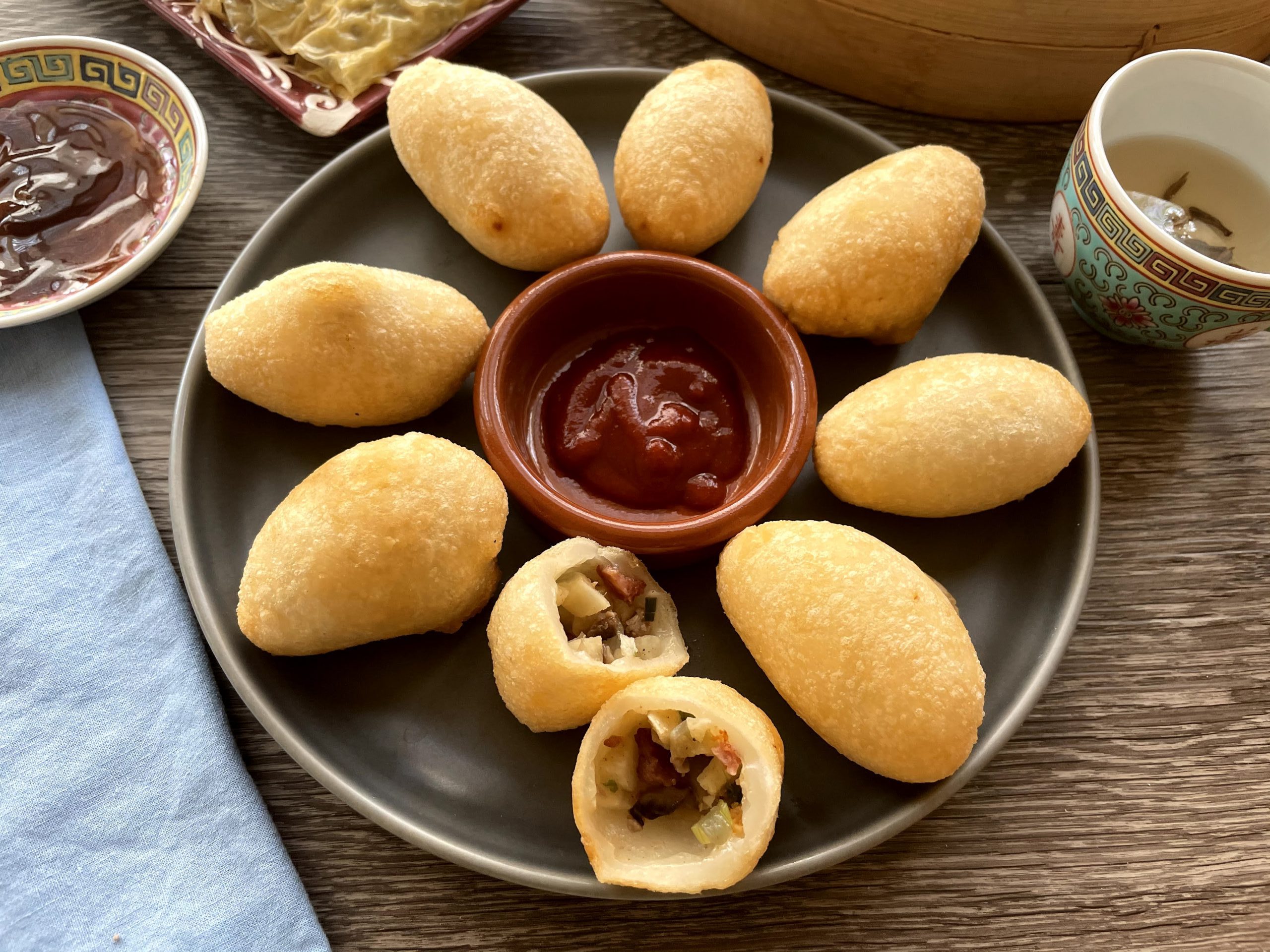
The Cantonese love their dim-sum. Dim sum or yum cha (literally drink tea) is a dining experience where a variety of small plates are served. In Hong Kong and most Cantonese restaurants, servers would push carts of steaming hot buns, dumplings and other delectable nibbles calling out their "inventory" in Cantonese. All of these dim sum dishes would be washed down with your choice of Chinese tea. One of my favorite items that I ALWAYS order are the fried glutinous rice balls. To me, this determines whether the restaurant's dim sum is good or bad! There needs to be a good balance of savory filling to the amount of dough. The rice dough should be soft, chewy and flavorful on the inside with a light crunch on the outside. Yummm...
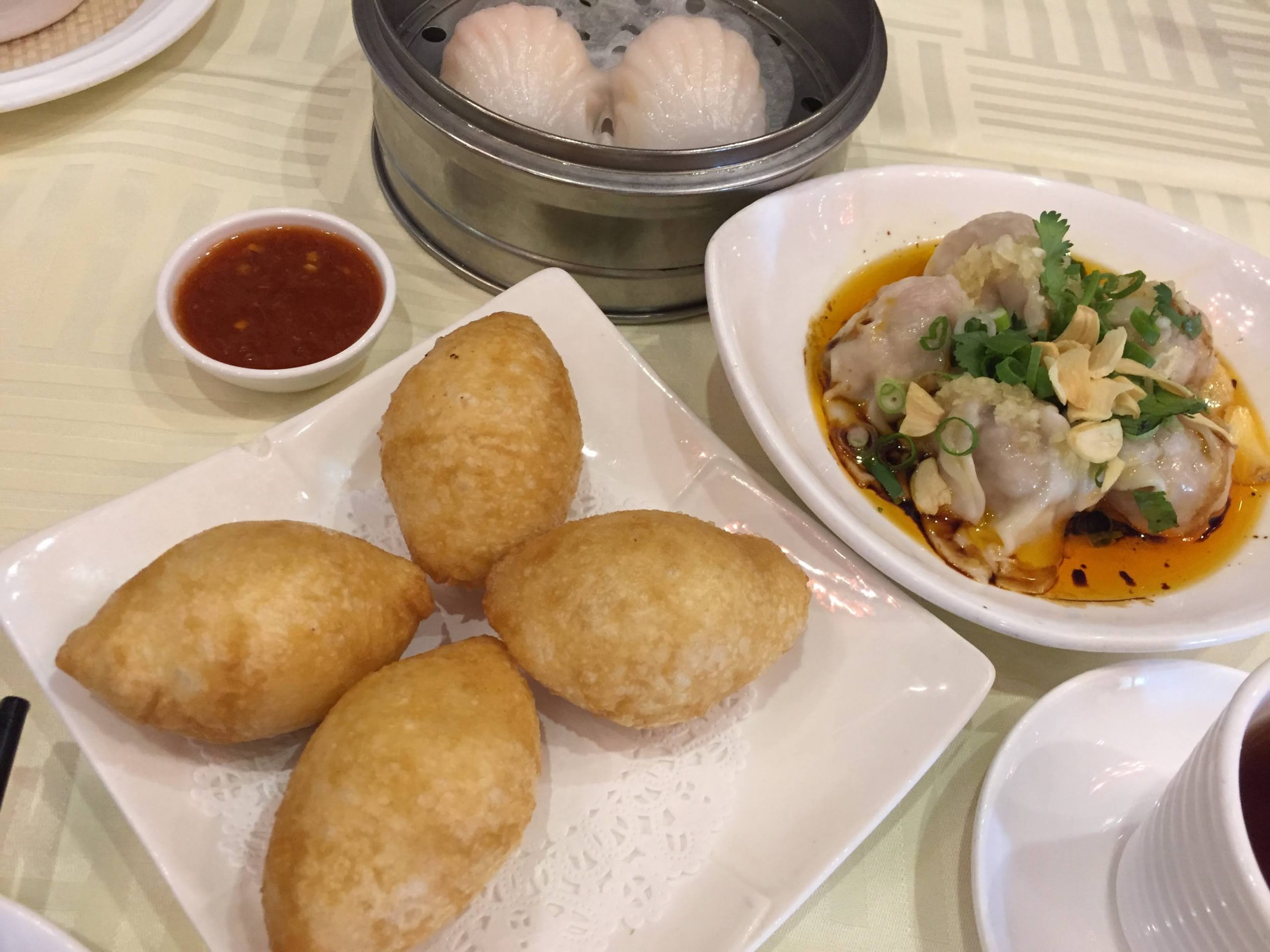
Dim sum at J Zhou
I love my coconut milk bread that uses the Tangzhong bread technique, resulting in a softer, moister dough. Tangzhong is a Japanese method of bread making that includes making a kind of roux by boiling water and the flour together. This starch in the roux traps in the moisture, resulting in a moister and more shelf stable end product. I decided to experiment with the recipe and incorporated the tangzhong technique into the dough making. The result was a fried dumpling that was comparable to one that my husband and I ate at J. Zhou which we consider one of the best dim sum restaurants around here. Most restaurants use lard to lighten up their dough and this recipe doesn't, an added bonus!
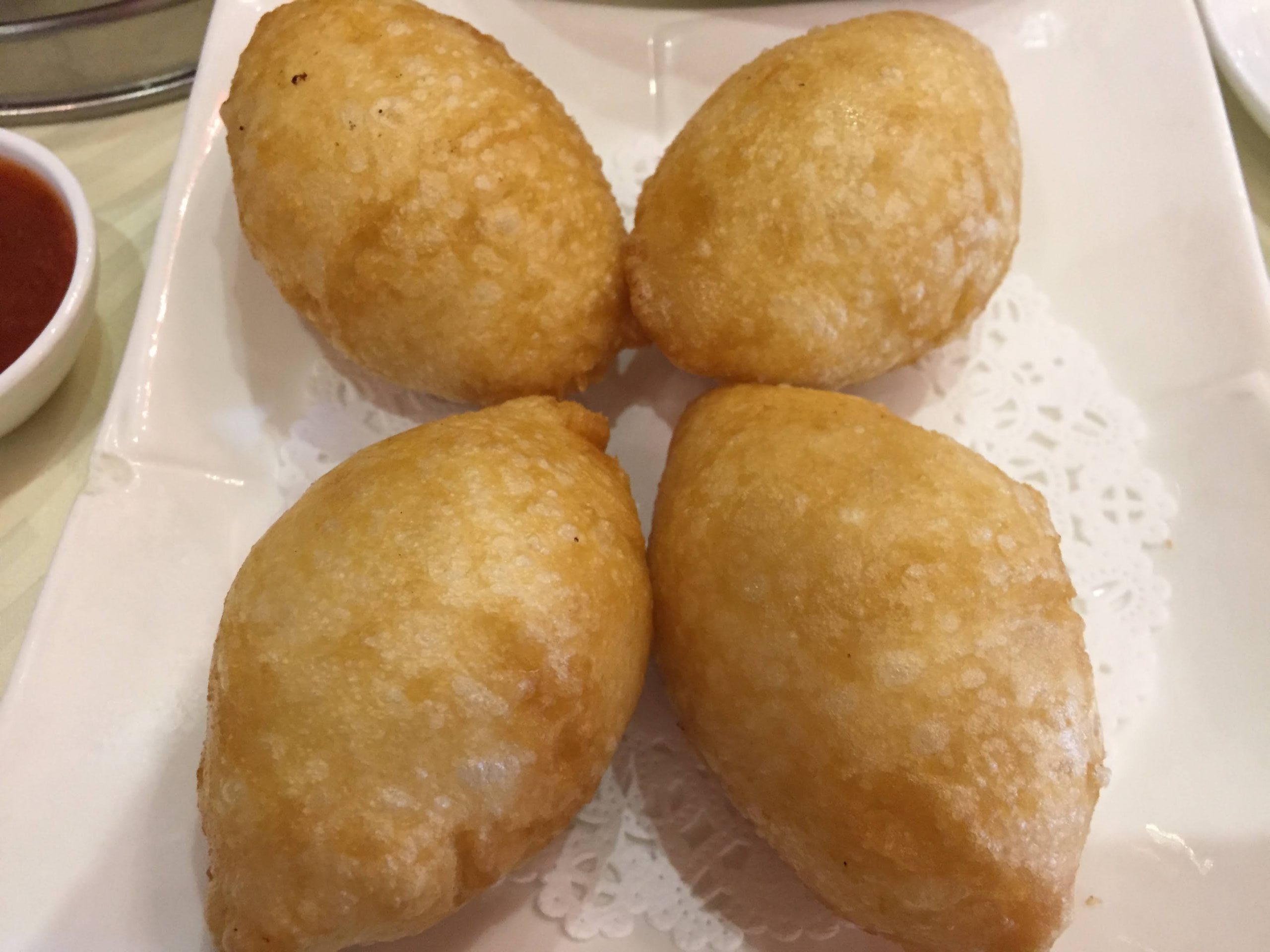
Savory glutinous rice dumplings.
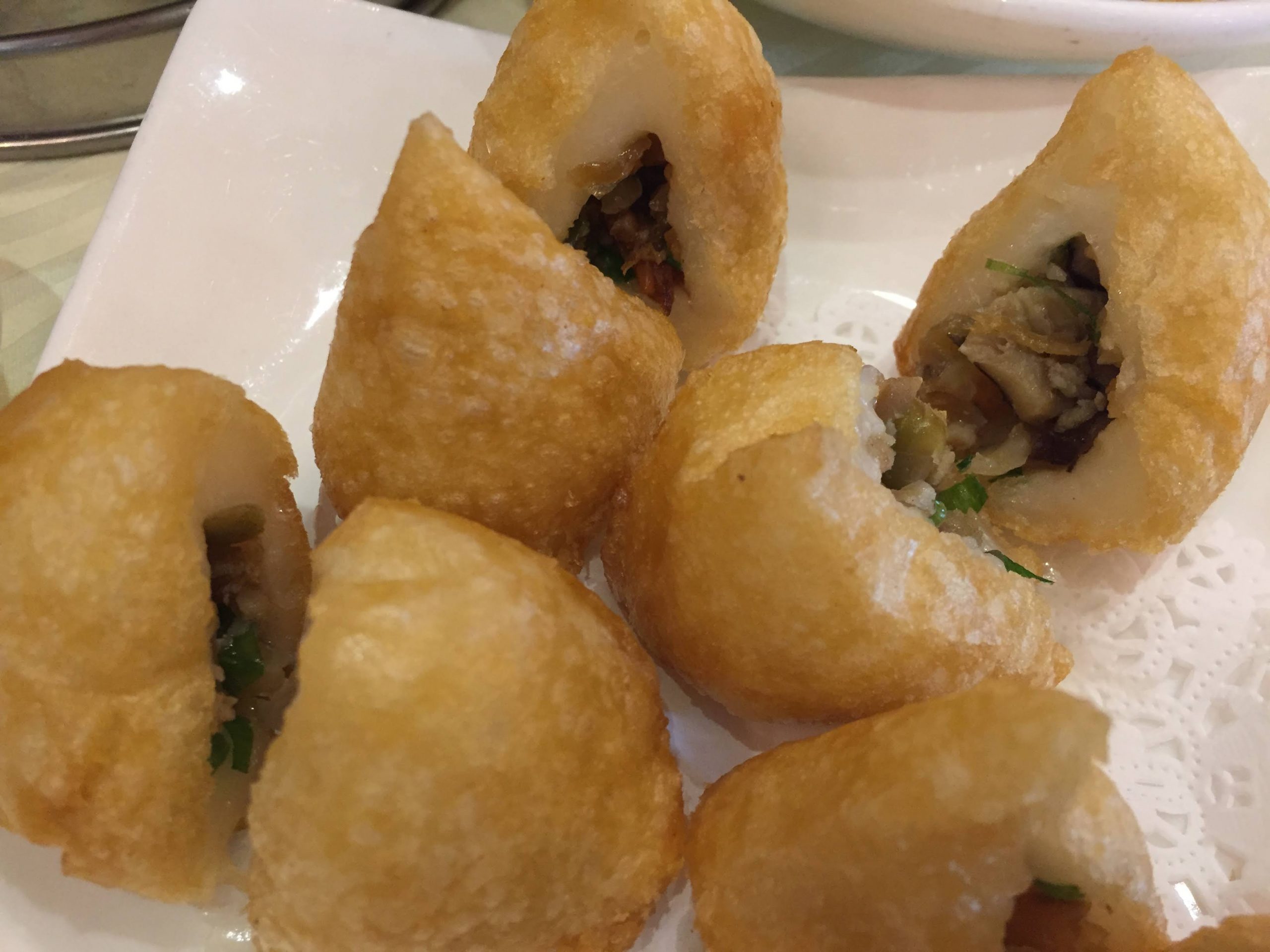
Interior of savory glutinous rice dumplings.
Tips for making fried glutinous rice dumplings.
Filling.
The Wong Family's dumpling filling is so delicious, it can be used as a base for many other types of dim sum with a few added ingredients. As always, I love crunch. For this filling you can use jicama or water chestnuts. These are added at the end without cooking to keep it extra crisp. The filling can be made ahead of time and should be cooled prior to filling the dumplings.
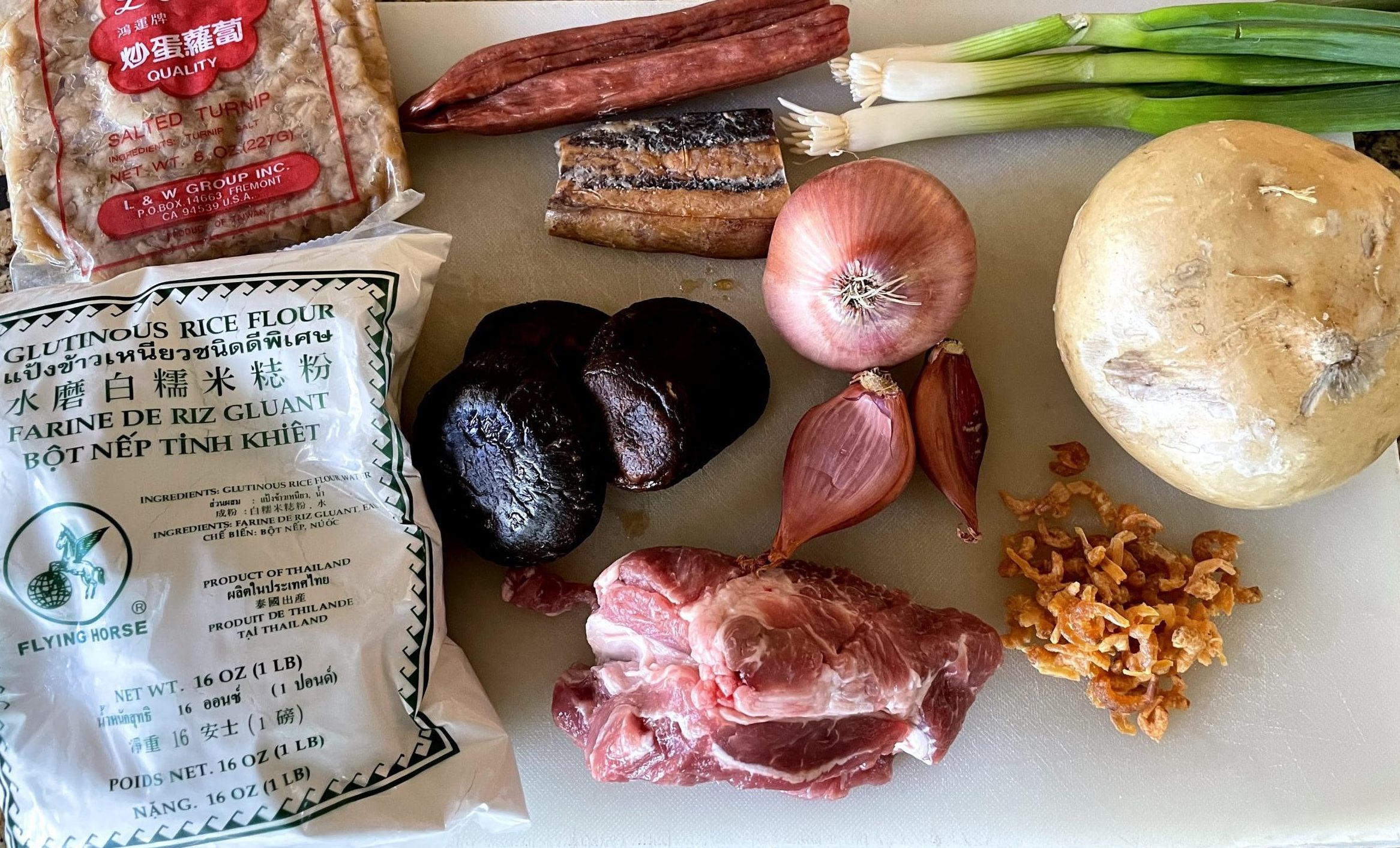
Ingredients for dumpling filling, minus the glutinous rice flour.
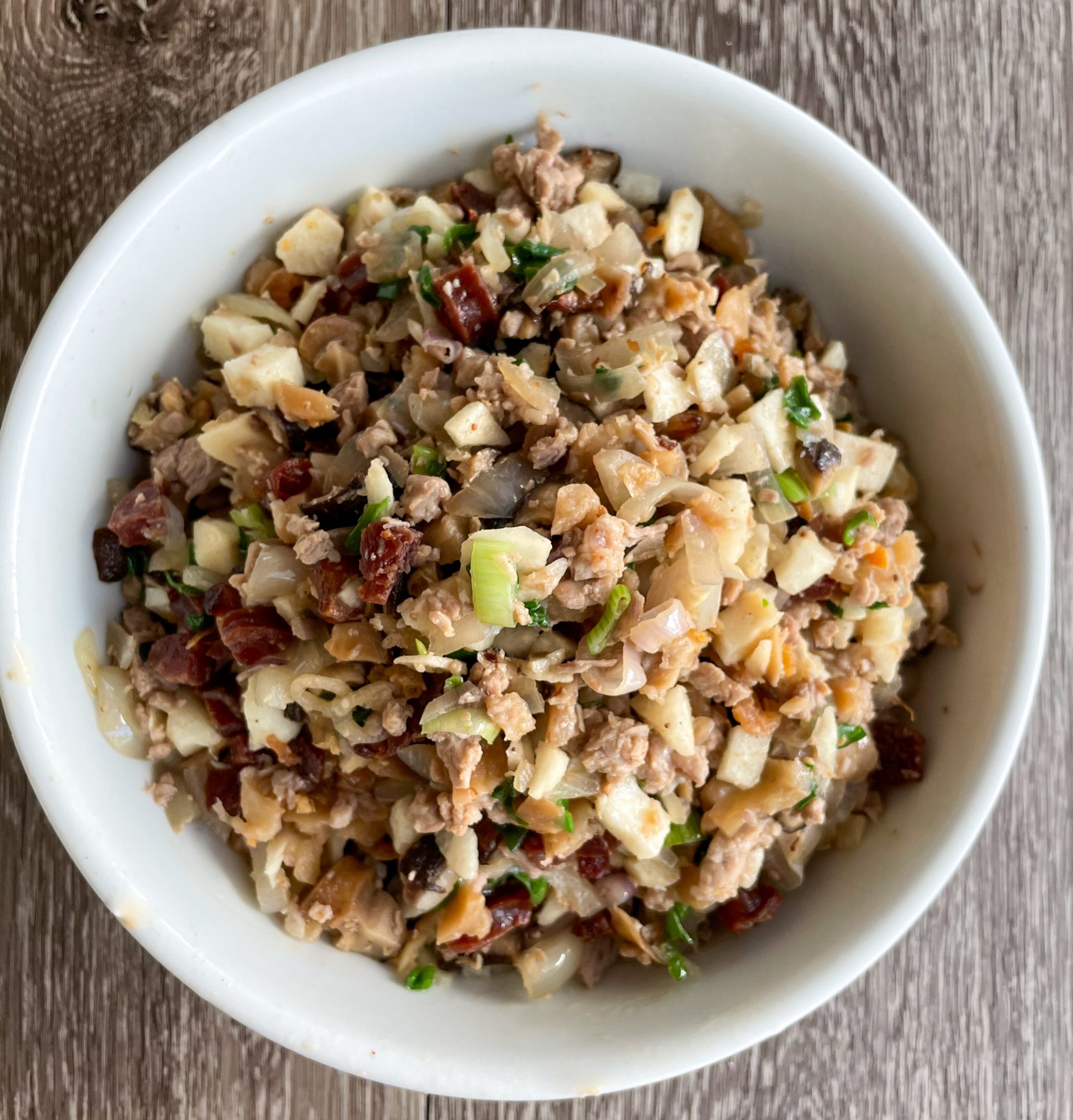
Cooked dumpling filling.
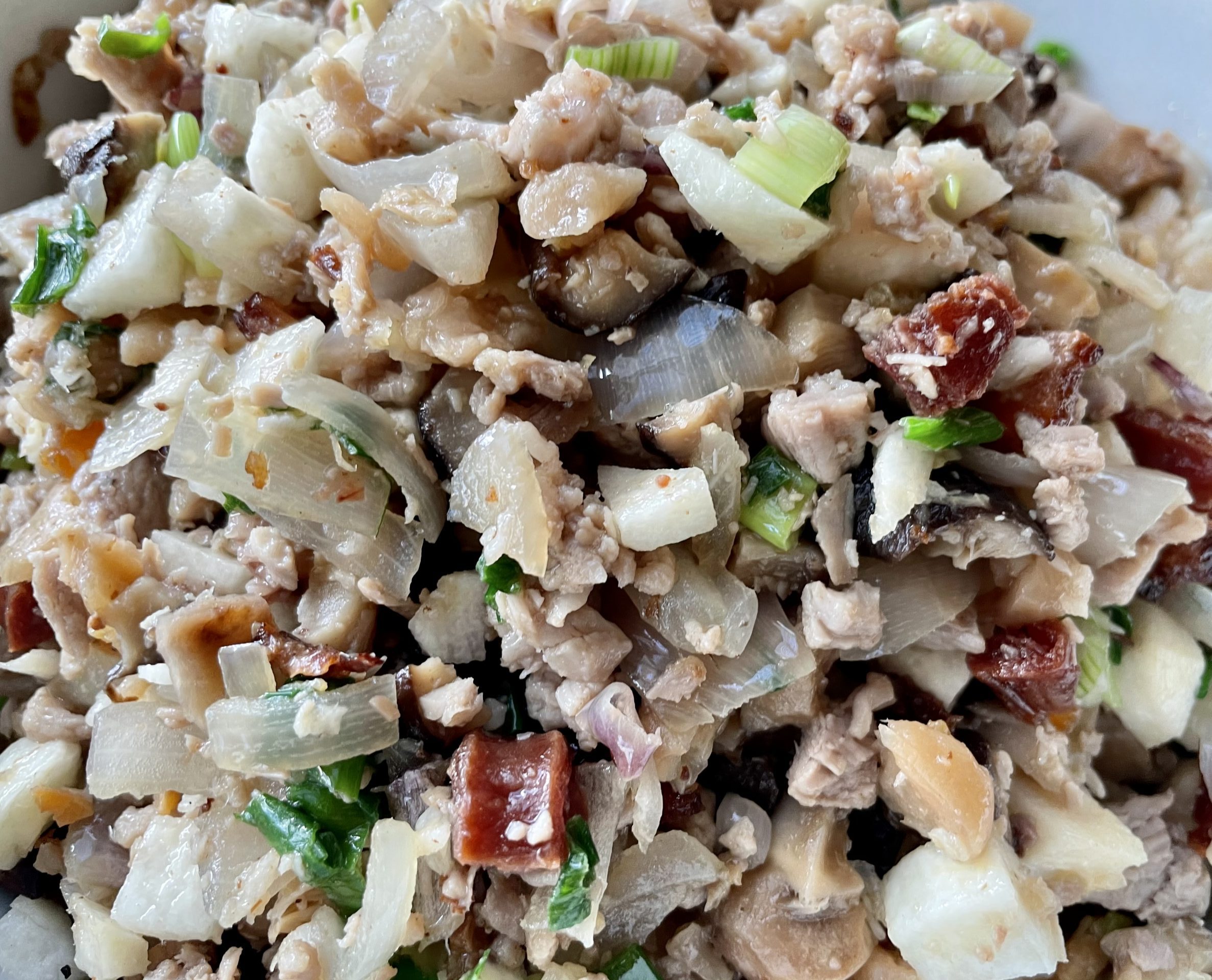
Dumpling filling with small diced pieces.
Glutinous rice flour.
Make sure you use the glutinous rice flour and not rice flour. It's a big difference! The rice flour will not be easy to handle and you won't get the same result.
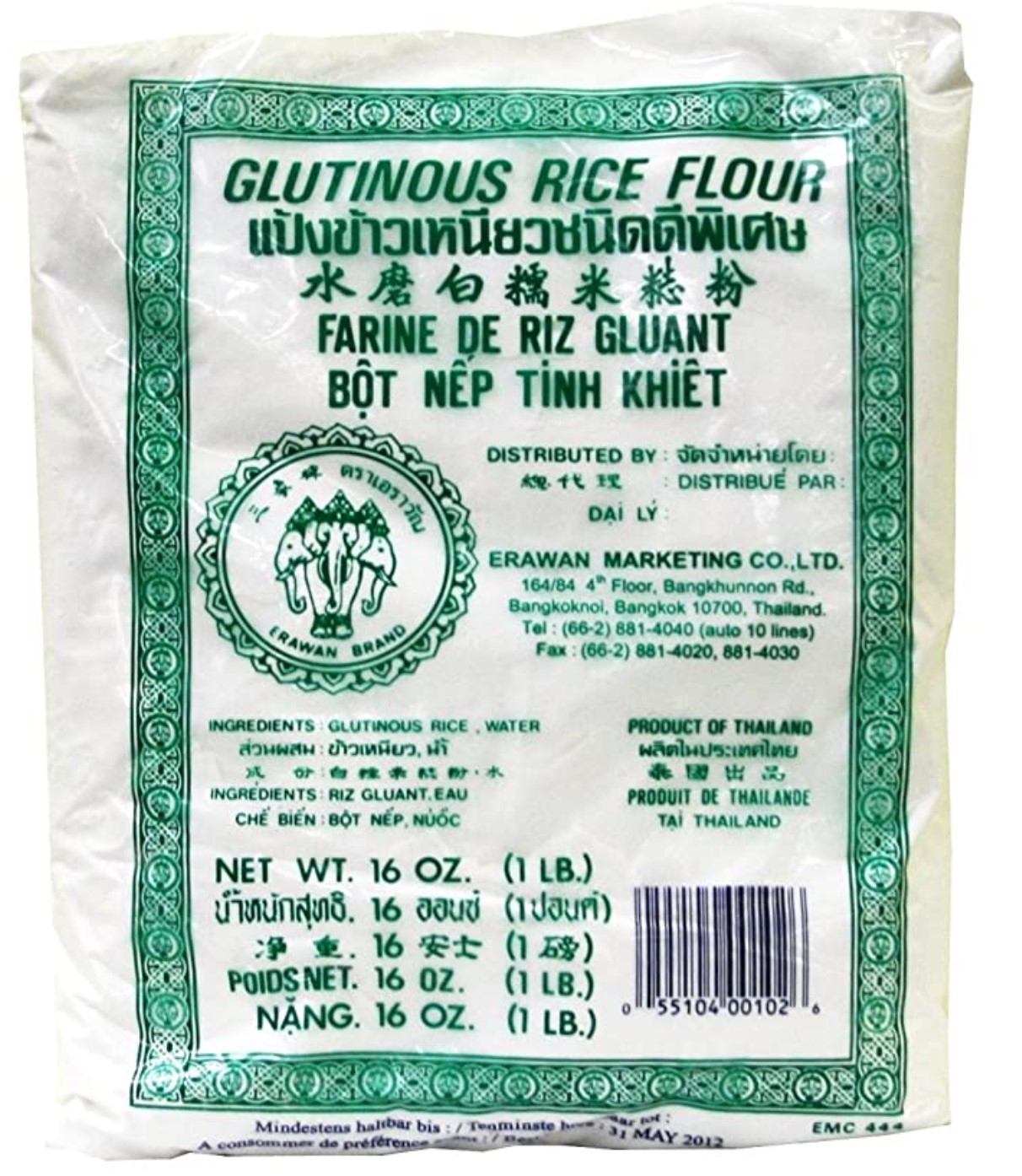
Glutinous rice flour.
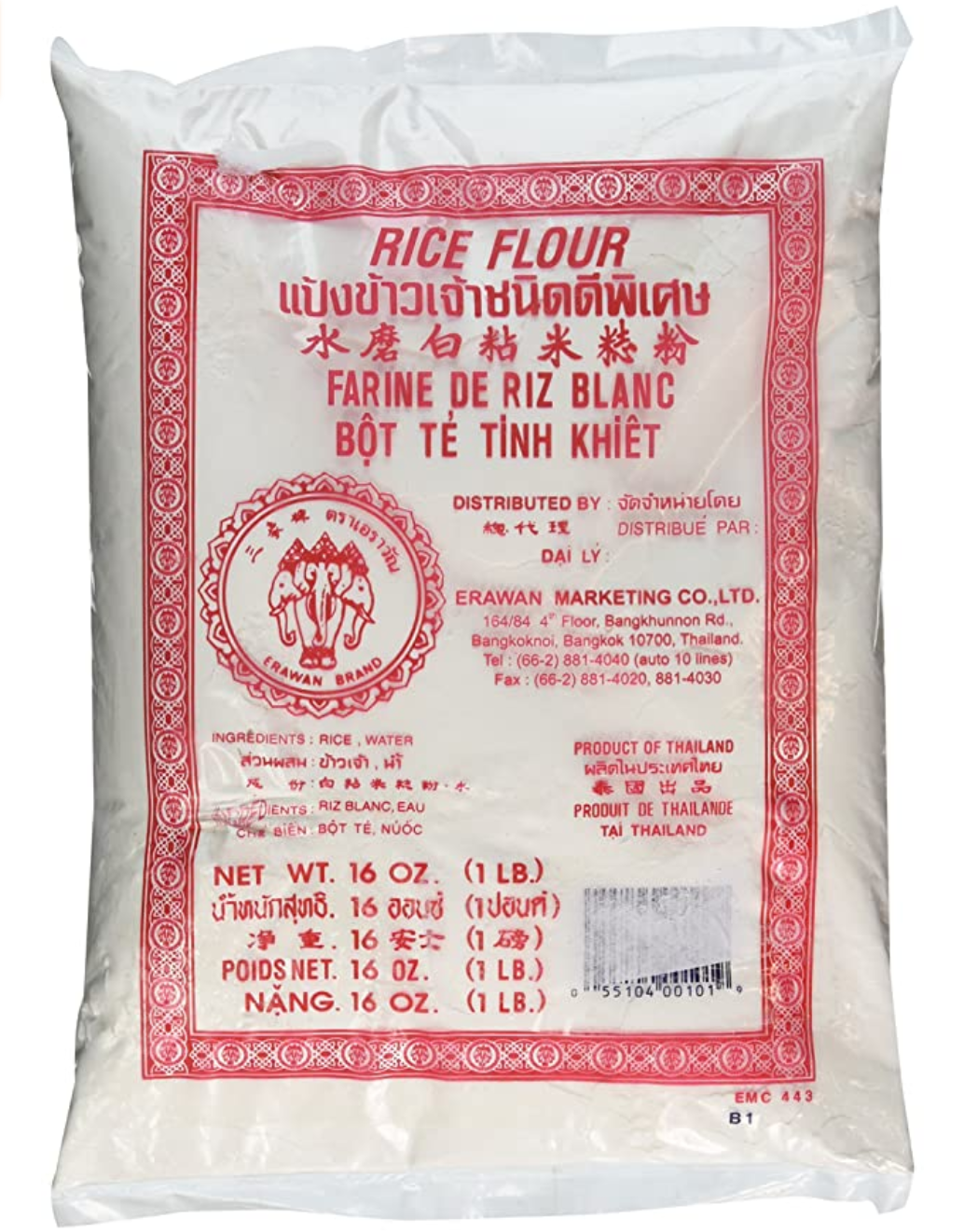
Rice flour. This flour WILL NOT WORK for the glutinous rice dumplings.
Tanzhong
Wheat or corn starch.
It is important to create a tangzhong with the wheat / corn starch. Corn starch is more readily available. I highly suggest that you watch the video to see the viscosity of the slurry that you are trying to achieve. If you overcook the slurry, the dough will be drier. You can remedy this by adding a little more water to get the correct consistency. I suggest that you control the thickness of the tangzhong by controlling the heat of the stove. When the mixture starts to thicken, turn the stove off and continue stirring until it reaches the required thickness. It should resemble a thick custard.
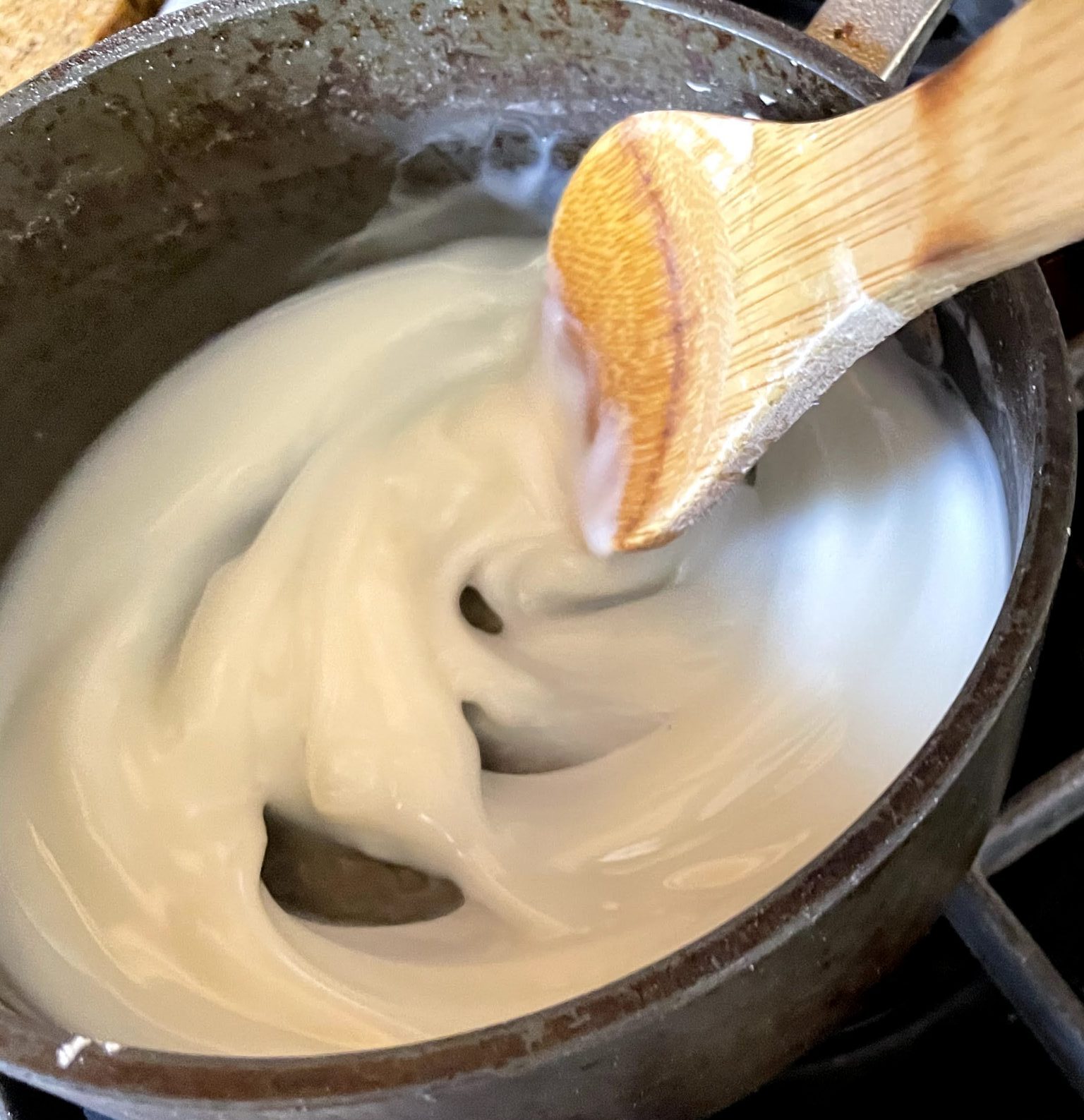
Tangzhong consistency.
Shaping the dough
There are various methods of shaping the dough. You can either use a rolling pin, your hand or a cleaver. I developed this fool-proof technique when making these fried glutinous rice dumplings with my family to ensure the thickness of the dough was consistent. You can use pastry sticks or free 5 gallon paint sticks that you can get from any paint or hardware store to ensure 1/4" (.64cm) dough thickness. Make sure it's the larger 5 gallon paint sticks.

1/4" thick paint sticks used to make dumplings.

Using an oiled cleaver, flatten the balls.

Dough discs 1/4" (.64cm) thickness
Keeping the dough moist.
It is important not to let the dough dry out and crack. The dry dough creates a skin which prevents the dough from blistering and uniformly expanding. Various measures can be taken to keep your dough moist.
- Keep your dough covered under a moist cloth
- Keep your dough balls in a plastic bag
- Work in small batches, assembling and frying the dumplings simultaneously. (This may require extra help!)
Filling the dumplings.
When filling the dumplings, make sure the dumpling is completely sealed with no cracks. Bits of filling on the exterior of the dough will burn resulting in a discoloration on the dumpling's skin.
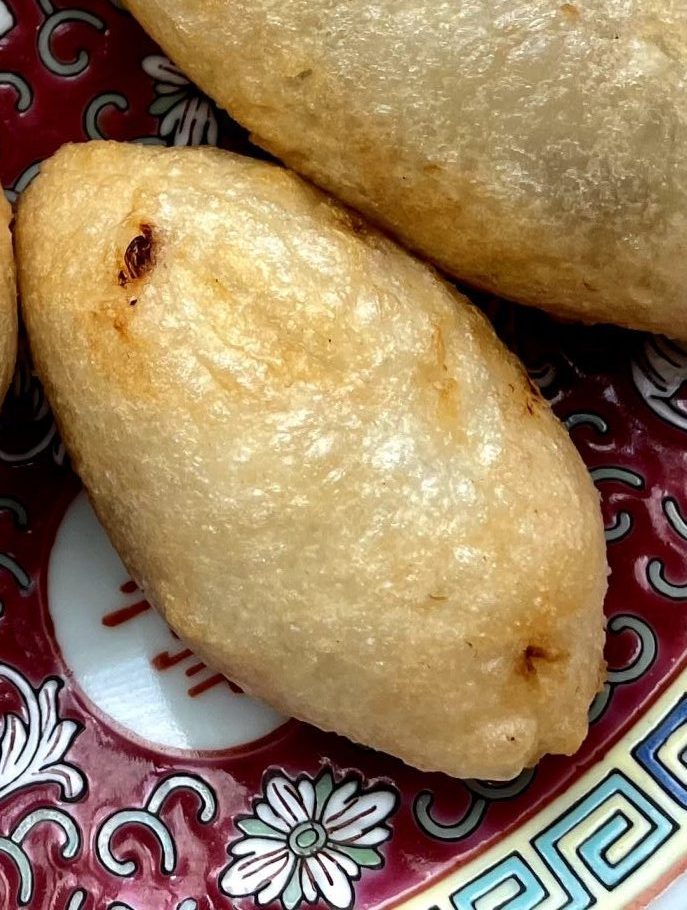
Discoloration caused by burnt dumpling filling on the dough.
Frying.
When deep frying, there should be sufficient oil to allow the entire dumpling to be completely submerged below the oil surface. Do not overcrowd. Dough exposed above the surface of the oil does not uniformly cook, creating a weak spot. As the dumpling expands, this weak spot is more vulnerable to splitting, creating an air pocket which may rupture, causing the oil to splatter and misshaping the dumpling.
The oil temperature should be between 350 -375 degrees fahrenheit (176-190 degrees celcius). Use an instant-read thermometer like the one below to ensure the correct temperature. This temperature allows the dough to slowly cook throughout and evenly expand without burning the exterior. When the exterior becomes crisp and slightly golden, remove the dumplings and allow them to cool on a wire rack rather than on paper towels.
The dumplings initially sink to the bottom. Make sure that it doesn't stick to the pot. The dumplings will eventually rise to the surface. Once it is floating on the surface, turn the dumplings to ensure a uniform color. (You may have to hold it with some tongs or chopsticks!)
Re-heating fried glutinous rice dumplings.
Place fried glutinous rice dumpling on some layered paper towels on a metal tray and re-heat it in the oven or toaster oven. I have found this the best way to re-heat these dumplings because it re-crisps the exterior and it extracts some of the oil! Make sure you do not burn the paper towels!
If you've tried this recipe, let me know how your fried glutinous rice dumplings turned out in the comment section.
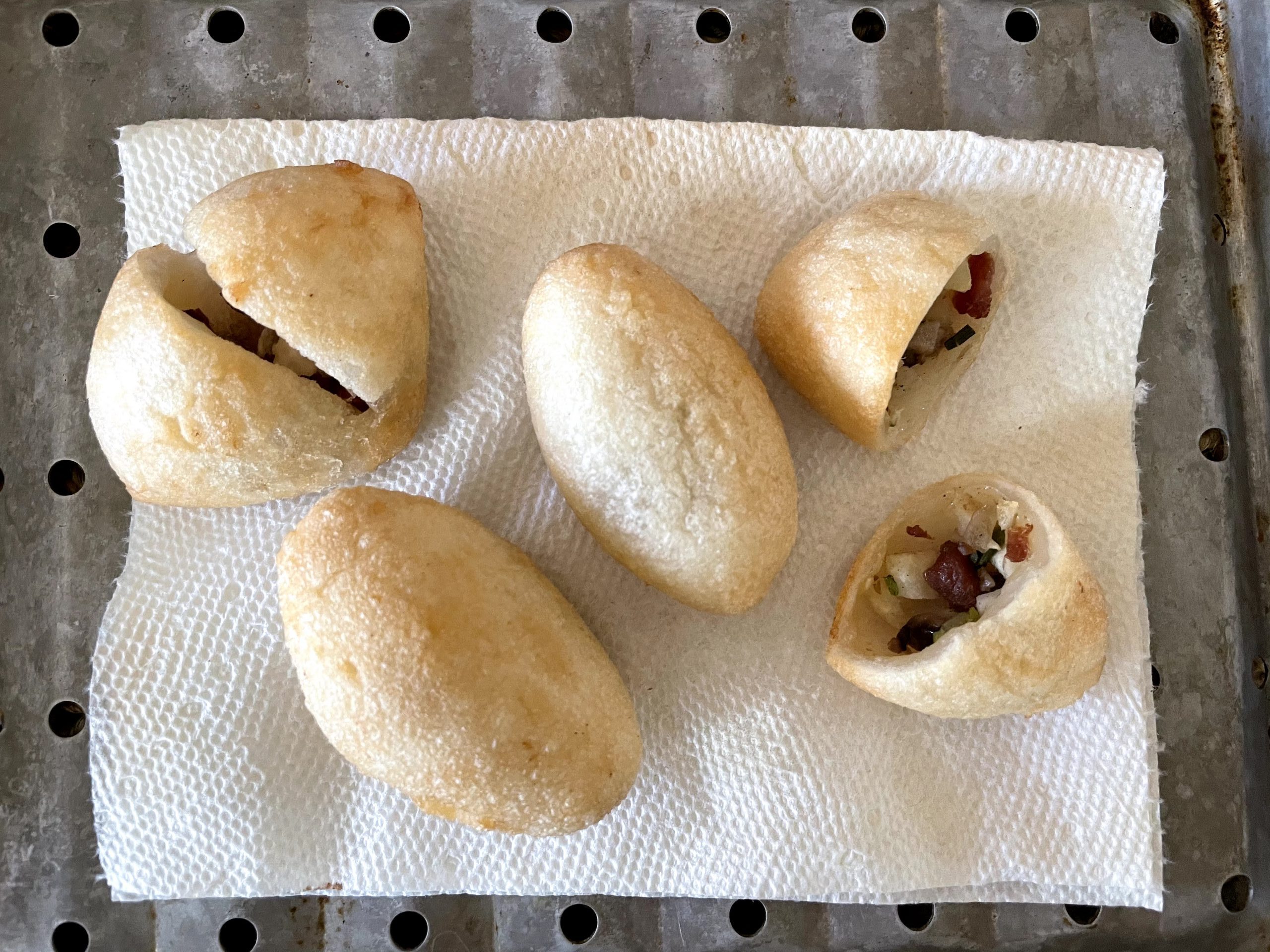
Reheat fried glutinous rice dumplings on a tray lined with a paper towel in a toaster oven.
WONG FAMILY'S DUMPLING FILLING
Ingredients
- 8 g dried shitake mushrooms about 2 for 1x recipe
- ½ cup water
- 1 tsp light soy sauce
- 1 piece Chinese sausage.
- 3 inch stick of Chinese style bacon
- 1-2 scallions
- 75 g shallots about 3 for 1x recipe
- 16 g dried shrimp.
- 56 g diced salted turnip
- 125 g jicama
- 150 g Boneless Pork Butt / Shoulder Roast or coarse ground pork
- ¼ tsp salt
- 1 Tbsp cooking oil. optional
- salt and pepper to taste
- light soy sauce to taste
Instructions
Rehydrate shitake mushrooms
- Soak mushrooms in water and 1 tsp of soy sauce for at least an hour.
- Cut pork roast into ½" (1 cm) thickness
Pork
- Briefly cook in microwave (1 minute). Do not overcook. Partially cooking the meat will make chopping into fine pieces a lot easier.
- Chop pork into approx. 1/3" dices.
- Sprinkle with salt and pepper to marinate.
Filling
- Chop Chinese sausage, Chinese bacon, Shitake mushrooms, shallots, dried shrimp, jicama into a 1/3"-1/2" (1 cm) small dice.
- Finely slice scallions.
- Rinse diced, salted radish with water through a strainer.
- Heat skillet over medium heat.
- Saute Chinese sausage and Chinese bacon, rendering as much fat as possible.
- Add partially cooked diced pork and stir to mix.
- Remove from pan with a slotted spoon.
- In the same skillet, add additional oil if there is not enough rendering to saute the shallots.
- Saute shallots until caramelized.
- Add diced shitake mushrooms. Stir.
- Add shrimp and diced radish. Stir.
- Add scallions. Stir
- Remove from heat and add to the cooked pork.
- Add raw chopped jicama.
- Season to taste with salt / soy sauce and pepper if necessary.
- Allow to cool before filling dumplings.
Video
Nutrition
FRIED GLUTINOUS RICE DUMPLING DOUGH
Ingredients
- 140 g Glutinous rice flour
- 45 g wheat / corn starch
- ⅓ cup boiling water
- ½ cup room temperature water
- 3 Tbsp sugar
Instructions
Make Tangzhong slurry
- Combine the room temperature water, sugar and wheat / corn starch in a preferably thick bottomed small saucepan.
- Stir mixture until all dry ingredients are dissolved.
- Constantly stir over low heat, making sure to get rid of all the lumps.
- When the slurry starts to thicken, turn off heat and continue stirring until slurry resembles thick custard.
- Remove from heat.
Make dough
- Place the glutinous rice flour in a large bowl.
- Add the tangzhong slurry.
- Using 2 chopsticks or wooden spoon, incorporate the slurry into the glutinous rice flour.
- Add a little boiling water to the mixture. Stir
- Add more boiling water to the mixture. Stir until all the boiling water has been used.
- With your hands, combine the mixture until it comes together into a ball.
- Divide the glutinous rice ball into 12 even pieces and place in a freezer bag or under a moist towel.
- Allow dough to rest for 10 minutes before filling..
Video
Notes
Nutrition
DON'T MISS A RECIPE


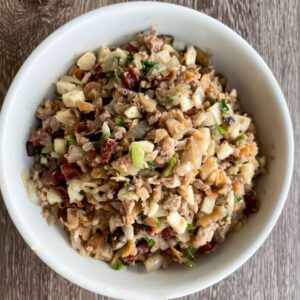
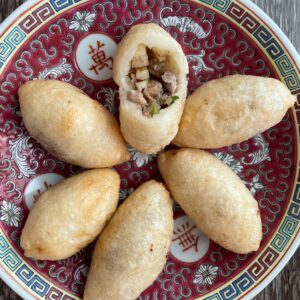
If I were to serve Japanese food, I would make sure to look for the best Asian restaurant that may provide the best Dumplings. Thank you for sharing here as well the importance of choosing the right filling for the dumpling. I also agree with you that it would be smarter to add water chestnuts too.
Yes, diced jicama works well too!